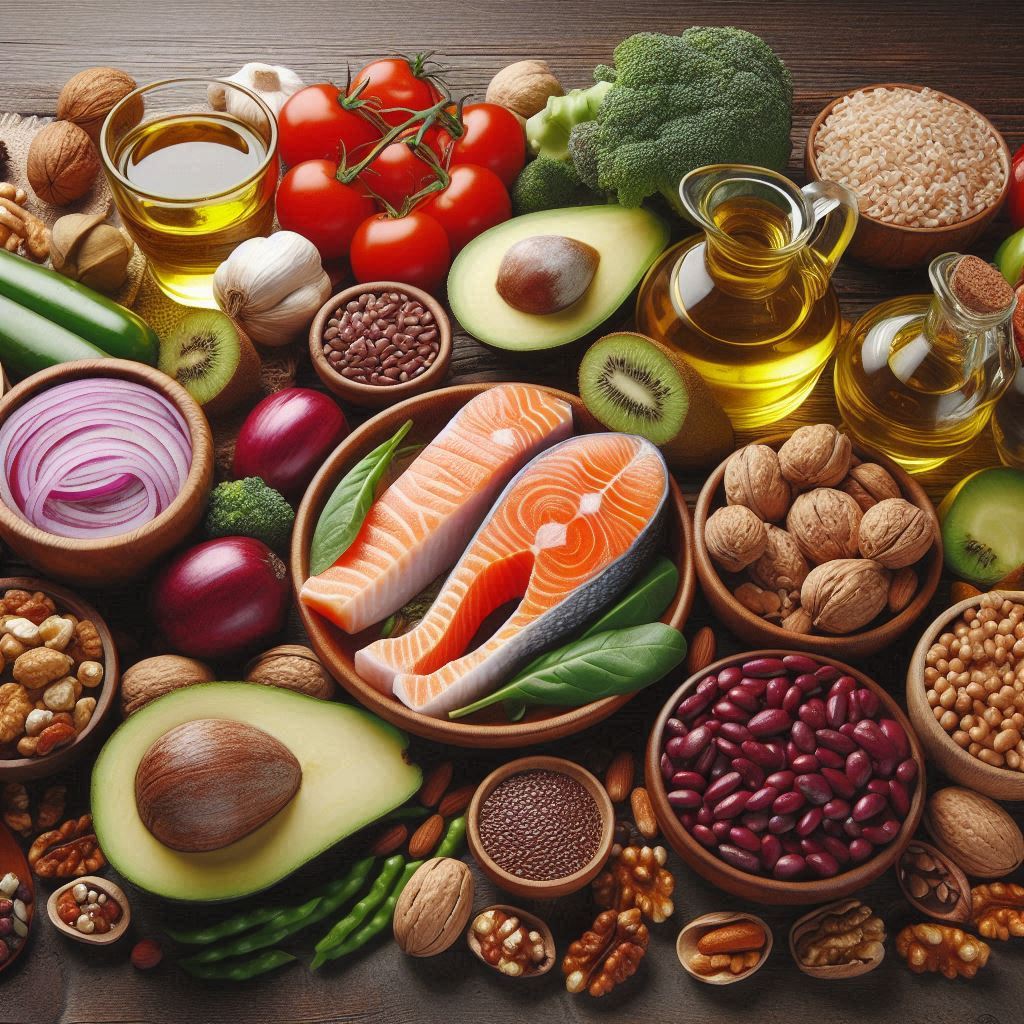Diet plays a very important role in the recovery process after acute myocardial infarction and preventing recurrence.
A healthy diet plays an important role in preventing acute myocardial infarction. The foods we consume directly affect blood lipids, blood pressure and blood sugar levels.
1. The importance of diet for people with acute myocardial infarction
The American Heart Association (AHA) said that diet plays an important role in improving cardiovascular health and reducing the risk of complications after acute myocardial infarction. According to the AHA’s recommendations, people with acute myocardial infarction need to follow a healthy diet to reduce cholesterol, blood pressure, blood sugar and weight, which are the main risk factors for cardiovascular disease. Therefore, a proper diet helps improve cardiovascular health, improve heart function, strengthen cardiovascular health and reduce the risk of complications after acute myocardial infarction.
In addition, a healthy diet also helps improve overall health, improve the health of the digestive system, immune system and nervous system, while improving quality of life, reducing the risk of depression, anxiety and increasing energy.
The European Society of Cardiology (ESC) also confirms that nutrition plays an important role in recovering from a heart attack and preventing a recurrence. A healthy diet can help:
Reduce cholesterol and blood pressure: High cholesterol and high blood pressure are two major risk factors for heart attacks. A diet rich in fruits, vegetables, whole grains and fish can help lower cholesterol and blood pressure.
Improve heart function: A healthy diet can help improve blood flow to the heart and improve heart health.
Weight loss: Being overweight or obese increases the risk of heart disease. Losing weight, even a small amount, improves heart health.
Control blood sugar: Diabetes is a risk factor for heart disease. A healthy diet can help control blood sugar.
Reduce the risk of anxiety and depression: These are common problems after an acute heart attack. A healthy diet can help reduce symptoms of anxiety and depression.
2. Important nutrients for people with acute myocardial infarction
According to the American Heart Association, the following important nutrients should be supplemented for people with acute myocardial infarction:
- Fat: Increase monounsaturated fat (olive oil, avocado, nuts); Increase polyunsaturated fat (salmon, walnuts, flaxseed) …
- Fiber: Eat lots of fruits and vegetables. Choose whole grains instead of refined grains.
- Protein: Choose lean protein such as fish, chicken, beans, nuts …

A healthy diet promotes heart health.
Supplementing vitamins and minerals through food
- Vitamin B: found in whole grains, chicken, fish, green leafy vegetables.
- Vitamin C: found in citrus fruits, bell peppers, broccoli.
- Vitamin E: found in walnuts, sunflower seeds, vegetable oils.
- Potassium: found in bananas, sweet potatoes, spinach.
- Magnesium: found in nuts, whole grains, green leafy vegetables.
3. Check out some diets
The European Society of Cardiology recommends that people who have had a heart attack follow a Mediterranean diet. This diet includes:
- Lots of fruits, vegetables and whole grains: These foods are rich in fiber, vitamins and minerals that are essential for heart health.
- Fish: Fish is a source of heart-healthy omega-3 fatty acids. Eat fish at least twice a week.
- Olive oil: Olive oil is a monounsaturated fat that can help lower cholesterol and blood pressure.
- Nuts and legumes: These are good sources of protein, fiber and healthy fats.
- Low-fat yogurt and cheese provide calcium and protein.
- Limit red meat, processed meat and salt because these foods and spices can increase cholesterol and blood pressure.
In addition, the European Society of Cardiology also recommends that people who have had a heart attack should:
- Eat several small meals throughout the day instead of three main meals.
- Cook more at home to control the amount of salt, fat and sugar in your food.
- Read food labels carefully and choose foods low in sodium, saturated fat and cholesterol.
- Drink enough water every day.
- Limit alcohol, preferably no alcohol at all.
- Quit smoking.
Dr. Michael Greger, author of several health and nutrition books, including “How Not to Die,” recommends that people who have had a heart attack eat a plant-based diet rich in fruits, vegetables, whole grains and legumes. He says this diet can help reduce the risk of heart disease and other chronic diseases.
Here are some foods that Dr. Greger recommends people after an acute myocardial infarction should eat:
- Fruits: Apples, pears, oranges, bananas, strawberries, etc.
- Vegetables: Broccoli, kale, spinach, carrots, sweet potatoes, etc.
- Whole grains: Oats, brown rice, whole wheat bread, etc.
- Legumes: Black beans, lentils, green beans, etc.
Dr. Greger also recommends that people after an acute myocardial infarction combine a healthy diet with a scientific lifestyle to help people after an acute myocardial infarction improve their cardiovascular health, reduce the risk of complications, and improve their quality of life.
Changing your diet can be difficult, but it is important to make changes to improve your cardiovascular health after an acute myocardial infarction. The American Heart Association recommends that people who have had an acute myocardial infarction consult with their doctor or nutritionist to develop a diet that is appropriate for their individual needs.





